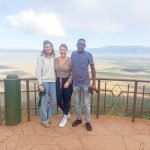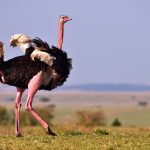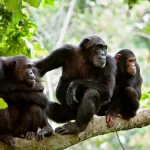
- Tanzania Safari FAQs
-
Written by : Tarimo Expeditions
Tanzania Safari FAQs for Travellers
If you are planning to go on a Tanzania safari, you are likely to have a lot of questions. Here are some of the most frequently asked questions about Tanzania safaris and their answers:
What is a Tanzania Safari?
A Tanzania Safari is a trip to one of Tanzania’s many game reserves or national parks, such as Serengeti National Park, Ngorongoro Crater, or Tarangire National Park, with the goal of viewing wildlife in their natural habitat. It is an opportunity to see some of Africa’s most iconic animals, such as lions, elephants, and zebras, in their natural environment.
When is the Best Time to go on a Tanzania Safari?
The best time to go on a Tanzania safari is during the dry season, from late June to October. During this time, the animals tend to congregate around water sources, making them easier to spot. Additionally, the weather is generally dry and sunny, making it more comfortable for travelers.
What Should I Pack for a Tanzania Safari?
When packing for a Tanzania safari, it is important to bring lightweight, breathable clothing that can protect you from the sun, as well as warm layers for cooler evenings. Additionally, you should bring a good pair of walking shoes, a hat, and sunglasses. Binoculars and a camera are also essential, as well as an insect repellent and sunscreen.
What is the Cost of a Tanzania Safari?
The cost of a Tanzania safari varies depending on the length of the trip, the level of accommodation, and the activities included. Generally, a Tanzania safari can cost anywhere from $1,500 to $10,000 per person. It is important to do your research and choose a reputable tour operator to ensure that you are getting a fair price.
What Animals Will I See on a Tanzania Safari?
Tanzania is home to a wide variety of animals, including lions, elephants, leopards, cheetahs, giraffes, zebras, and wildebeest. Additionally, you may see smaller animals such as hyenas, jackals, and warthogs.
What is the Difference Between a Tanzania Safari and a Game Drive?
A Tanzania safari typically involves several game drives, which are guided tours through the parks in search of wildlife. A game drive can last several hours and typically takes place early in the morning or late in the afternoon when the animals are most active. While a game drive is a key part of a Tanzania safari, it is not the only activity included. Other activities may include walking safaris, hot air balloon rides, or cultural experiences.
What is the Accommodation Like on a Tanzania Safari?
Accommodation on a Tanzania safari can range from luxury lodges and tented camps to budget-friendly campsites. The type of accommodation you choose will depend on your budget and personal preferences. Most lodges and camps offer comfortable beds, en-suite bathrooms, and stunning views of the surrounding landscapes.
What is the Food Like on a Tanzania Safari?
The food on a Tanzania safari is typically delicious and varied, with a mix of local and international cuisine. Breakfasts often consist of fresh fruit, eggs, and toast, while lunches and dinners may include dishes such as grilled meat, stews, and curries. Vegetarian and special dietary requirements can usually be accommodated with advance notice.
What is the Safety Record of Tanzania Safaris?
Tanzania is generally a safe country to visit, and safaris are typically very safe. However, it is important to take basic precautions, such as staying with your guide at all times and avoiding walking alone at night. You should also make sure to get up-to-date information on any potential safety concerns before traveling.
What Should I Know About Tanzania Culture Before I Go on a Safari?
Tanzania is a country with a rich and diverse culture, and it is important to respect local customs and traditions while on safari. In general, it is recommended to dress modestly, especially when visiting local villages or religious sites. You should also learn a few phrases in Swahili, the local language, and make an effort to interact with the local people.
What Should I Know About the Local Customs?
In addition to respecting local culture, there are a few other customs to be aware of when on safari in Tanzania. For example, it is customary to greet people with a handshake, and it is considered impolite to point with your finger. You should also avoid discussing topics such as politics or religion, as these can be sensitive subjects.
What Should I Do in Case of an Emergency?
In case of an emergency on a Tanzania safari, you should contact your tour operator or guide immediately. They will be able to help you with any medical issues, as well as provide assistance in the event of lost or stolen items. It is important to have travel insurance that covers medical emergencies and evacuation.
Best of Our Tanzania Safaris
From the Wildebeest Migration to the Big 5 and Tropical White Sand Beaches
Explore the best of Tanzania with our curated collection of safaris packages. Experience breathtaking wildlife, stunning landscapes and cultural richness, there’s something for everyone.



